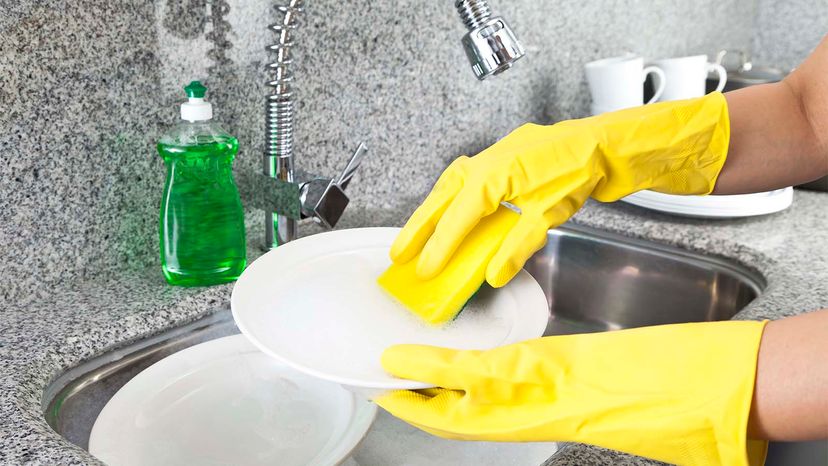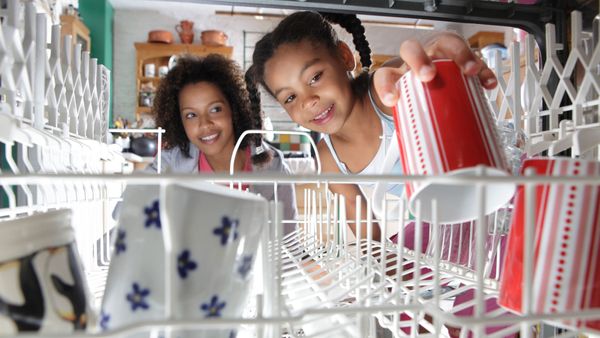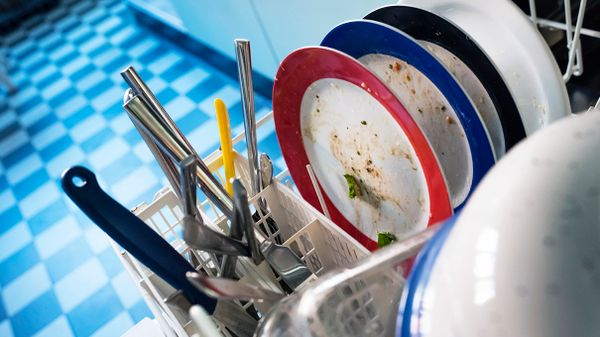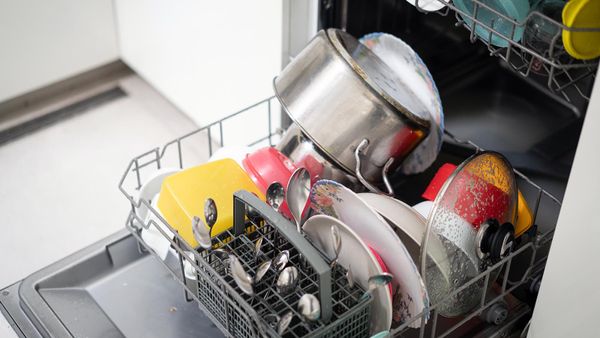
Consumers in the United States will spend nearly $3.7 million on dishwashing detergents in 2018 to get their dishes clean. That's a lot of suds and a whopping statistic that begs the question: Do we really need dishwashing soap to get our dishes clean?
The short answer is: No, we can get along without it.
Advertisement
So what does it take to remove all the grease and food particles and kill the pathogens that are left behind on our dishes and cookware after a sumptuous meal?
Common sense tells us that water plays a major role in the process. Thermal sanitizing using hot water is an effective and time-tested method to remove debris and kill a broad range of dangerous bacteria. A lot of what we eat can simply be rinsed away with very hot water. Carbohydrates like sugars and starches are water-soluble, and all that's required to clean them off dishes is hot water. So if you only eat carbs and emulsified fats you can clean your dishes with hot water and a little elbow grease.
Animal fats and proteins, however, are not water-soluble and need an alkali to break them down. So, if you're out of dish soap and have a greasy pan to wash you'll need to make your own soap by adding an alkali like baking soda (yes, that stuff in the yellow box) or ashes from, say, your fireplace, wood-burning stove or outdoor fire pit to steaming hot water and scrub your pan clean. While the modern convenience of dishwashing detergent may win the age-old battle between oil and water for most of us most of the time, luckily if you're a hobo, a camper or a homesteader, potash and soda ash are readily available in the remains of your campfire. While wood ashes and an improvised grass or shrub scrubber may not win the good housekeeping seal of approval, they'll clean your pan and get it ready for rinsing and sanitizing in boiling water and, finally, air drying.
Keeping in mind that dishwashing soap as we know it has only been around since the middle of the 20th century, it's interesting to note that people throughout the ages used all sorts of ordinary things found in the natural world around them – sand, animal fats, ash, alkaline salts, cuttlefish bone, plants like horsetail, mare's tail and soapwort, hay mixed with ash, baking soda, maple sap debris known as sugar sand, along with that major component – hot or running water – to scour and clean their dishes.
So whether you find yourself down to the last drop at home, forgot to bring it along on your camping trip or just want to try an eco-friendly, off-the-grid alternative to performing the age-old chore of washing dishes, here's a quick old-school how-to for modern times:
Advertisement


